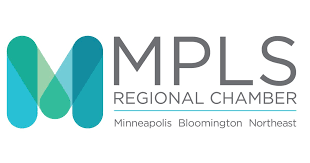Your best insurance policy when buying a franchise business is to hire an attorney. And not just any lawyer but one who is experienced with the legal nuances and complexities of franchising.
Checking off this step in the due-diligence process will give you peace of mind and possibly some negotiating advantages in the short term, while pre-empting costly errors over the long haul.
Here are answers to the most common questions we get about the need to work with a qualified franchise attorney during the franchise-buying due-diligence process.
Why Should I Retain an Attorney?
This should be obvious. The documents you sign to become a franchisee could have enormous legal, financial and lifestyle repercussions for you and your family. So, it’s important to have those documents professionally reviewed before a deal is transacted.
Specifically, the franchisor will provide you a copy of the brand’s Franchise Disclosure Document, which includes 23 sections or “items” required by the Federal Trade Commission (FTC). Embedded in that 300-page behemoth is the Franchise Agreement you will ultimately sign.
These are complicated documents that you should not go through alone. To avoid surprises later, every detail, from fees and responsibilities to the resale of your business and how disputes are settled, should be clear to you before you sign.
Why Do I Need a Franchise Attorney?
Franchise attorneys are specialists in franchise law. They stay current on the web of federal and state regulations and statutes that directly and uniquely affect this $860 billion industry.
While the FDD may be a tough read for you and even general-practice attorneys, it’s not for experienced franchise attorneys. They read hundreds of FDD’s and know exactly what to look for. They know what is typical and what clauses are of concern and should be modified.
So while a business or general practice attorney may churn hours suggesting modifications that, frankly, are not practical or negotiable, a franchise attorney cuts to the chase, saving you fees and providing clear, actionable advice.
What Should I Expect From a Franchise Attorney?
A franchise attorney’s key role is to review your FDD and Franchise Agreement and ensure the franchisor is complying with federal law as well as laws specific to your state. Typical activities include:
- Checking that the trademark is live and valid since this is a cornerstone of the franchise opportunity
- Reviewing all sections of the FDD and Franchise Agreement, and explaining them to you
- Providing a summary review letter with comments and opinions, plus a follow-up conversation to address your questions and any concerns
- If modifications are recommended, these are included in the review and a strategy is devised on how to discuss these with the franchisor
Within the FDD and Franchise Agreement, these sections especially are given a deep dive in a discussion with you:
- Your proposed territory
- The duration of your agreement
- The brand’s trademark and signage
- The definition and calculation of royalties
- The upfront franchise fee and ongoing fees
- Operating protocols and what is expected of you versus the franchisor
- The obligated spend for marketing, and expectations for you and the franchisor
Are Any Parts of a Franchise Agreement Negotiable?
Similar to the regulations of a homeowner’s association, a franchise agreement is intended to apply consistently to all franchisees – everyone is expected to follow the same rules in order to protect the brand and the value of the investment.
To this end, modifications to Franchise Agreements are infrequent. Still, there are exceptions and a franchise attorney, unlike other types of attorneys, will know what these are and the extent to which they can be negotiated.
Elements of the agreement most open to modifications include:
- Your defined territory
- Timeline to open your locations
- Timing and payment method of your franchise fee
- Parameters of your post-termination non-compete
- Parameters of the cure period for you to resolve defaults
- Parameters of your renewal rights and termination clause
At What Point In the Process Should I Contact A Franchise Attorney?
Wait until you are close to committing to a franchise before connecting with a franchise attorney. This is usually in the days leading up to Discovery Day (aka Confirmation Day).
If you’ve made travel plans to attend, that’s your signal to start talking. If you are working with a franchise consultant, this is part of the natural process and you will be introduced to a couple of options.
How Do I Find a Franchise-Specific Attorney?
If you are not working with a franchise consultant, feel free to contact us. We work with several outstanding attorneys. Another option is to search the AVVO website.
What Questions Should I Ask to Vet a Franchise Attorney?
Once you have narrowed your search, interview the franchise attorney by phone or zoom. Ask questions and learn about their experience and their perspectives, as well as fees and services.
Suggested questions include:
- Tell me about your experience and why I’d be making a smart choice working with you?
- What is your fee and what is included?
- Are you familiar with the brand that I am considering?
- If I’m buying a business that requires a lease, can you review that too?
- Can you help me set up my legal entity for my business?
- For what might you charge me additional fees?
- Can you provide a couple of referrals, especially if they’ve invested in the same franchise
Want Help Evaluating Franchise Opportunities?
We can help you identify and invest in the franchise business that is right for you. Our personalized ownership recommendations help you save time, reduce risk and invest confidently – with no fee or hidden cost.
Our process starts with a free 15-minute conversation during which we introduce ourselves, learn about you and give you a sense of how we’d work together. You can then decide if you’d like to proceed.
No obligation, no catch – we invite you to chat when you’re ready. You can schedule easily online for the date and time of your preference.






